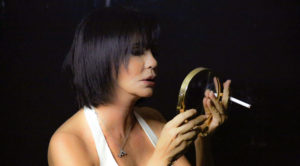“Children in their games are wont to submit to rules which they have themselves established, and to punish misdemeanours which they have themselves defined.” Thus did Tocqueville marvel at Americans’ habit of self-government, and the temperament it both required and encouraged from a young age. “The same spirit,” he said, “pervades every act of social life.” The unsupervised games and rituals of children in the 19th century were nicely depicted (with comic exaggeration) in Mark Twain’s novels The Adventures of Tom Sawyer and Huckleberry Finn.
In his review of a 1993 book on the history of masculinity by one E. Anthony Rotundo, Christopher Lasch writes that boys “challenged each other to spontaneous feats of daring and agility, acted out stories of heroic adventure and collaborated in the enforcement of an informal code of honour that stressed courage, loyalty and stoic endurance of pain”.
Such patterns of self-directed activity persisted into young adulthood in informal associations such as debate societies. “The clash of wits between friends recalled the physical combat of loyal playfellows in boyhood… mixing affection with attack.” Such associations could serve as a substitute for college. “We educated each other by criticising and laughing at each other,” one informant recalled.
But by the end of the 19th century, such autonomous organisations of young men were fading away. “Education was increasingly confined to the classroom, agonistic rivalry to the playing field. Formal pedagogy replaced spontaneous play and self-culture.”
Lasch continues: “The expansion of extracurricular activities, at every level of the school system, reflected the expansion of pedagogical authority over young people formerly left to their own devices. The dead hand of the educator reached deep into childhood, redesigning life as a “learning experience”.
This was part of a larger pattern in which previously unsupervised domains of life were subject to systematic study and control. The domains of women were no less subject to this process. It was an era that saw the birth of home economics, sexology, the academic study of childhood development, social work, and professionalised training in the new sciences of pedagogy. The intimate and the spontaneous became subject to therapeutic mediation in the service of various social goods.
If the “life-world” means the background patterns of life that are taken for granted, within which one can dwell unmolested, here was a new determination to leave nothing taken for granted, nothing unstudied. What this meant in practice was the colonisation of the life-world by organised expertise, corresponding to institutional money and power.
Life under these conditions feels a bit off — like the opposite of vitality. One’s own powers of making sense of the world are somehow disqualified. These are powers that develop naturally through action in the world. As the legitimacy and confidence of common sense is eroded, the field of meaningful action that is open to an individual seems also to shrink. Action is reduced to making choices from a menu of presented options, as in shopping, as opposed to a generative activity by which some mental conception of one’s own is brought forward into the shared world. The shared world is already saturated. It is fully known and mastered; your task is merely to get yourself properly aligned to it.
Some of us chafe against this, and I believe this is the subterranean source of an ornery political energy that we call populism. Populism often states its opposition to power in epistemic terms, as sceptical hostility to experts. What gets lost in all the screeching is that the basic impulse at work here is a positive one.
Lasch writes that the new patterns of administered life at the turn of the century were experienced by many as “subjection to routines that drained the joy out of work and play and wrapped everything in a smothering self-consciousness”.
Taking issue with the interpretation offered by Rotundo, Lasch wrote: “Surely it was this feeling of suffocation, much more than the need to prove something about masculinity, that explains the idealisation of the strenuous life at the turn of the century: the attraction of imperialism and war, the longing for wide open spaces, the new interest in the primitive and exotic, the nostalgia for simplicity and lost innocence.”
Those restless adventurers of Teddy Roosevelt’s time had no idea how far the colonisation of the lifeworld had yet to progress. With Covid, we acquiesced to an extraordinary extension of expert-like supervision into every domain of life.
But I think it would be a mistake to focus only on such episodes of heavy-handedness. In his book, Little Platoons, Matt Feeney details the workings of institutions that cluster around the family and feed off it, turning our most intimate loyalties to bureaucratic purposes while reshaping parents and children alike into compliant drones. To take one example, the college admissions process in America has extended its poisonous reach deep into childhood (apparently it starts with getting into the right pre-school) for the upper-middle class, requiring children and parents to collaborate in the crafting of a particular kind of self — one that will appeal to admission officers.
“Holistic admissions” downplay grades and test scores to make room for intangibles, so it is the whole person that is laid bare to the scrutiny of bureaucrats steeped in the moral vapours of their own professional formation. They sift through stacks of applications seeking people who have demonstrated… what, exactly? To begin with, a willingness to shape themselves to send whatever signals are wanted by those with power over them. To know what is wanted takes a certain intelligence. At stake is the question of whether Johnny will be able to afford his own house one day. Thus is the professional managerial class (PMC) formed into a posture of complaisance.
But nobody likes to think of himself as a cipher. The young man’s (or woman’s) complaisance is overlaid with a compensating view of himself, made available to him by the simple fact of his having passed the gatekeeping: he adopts an identity centred on his smartness or knowledgeableness. The content of the knowledge that marks one as part of the PMC consists of the organised expertise through which money and power extend their dominion. They do so by seeking out those remaining pockets of the lifeworld where unselfconscious, vernacular practices may persist. Such un-mined pockets offer opportunity for further systemisation and profit — if they can be brought into the fold of expert-like supervision. “There’s an app for that.”
In certain red-pillish-tending pockets of the PMC, there seems to be a growing awareness of and unease with their role as agents of this push. The shakiness of various systems of organised expertise, and the enforced character of the “consensus” that they are used to anchor, has grown more apparent as the system flails against populist challenge. This can lead to nagging questions of a cui bono nature, which may reflect on the young man’s identity as a “knowledge worker” (to use a term from a more innocent time when these ideological structures were more secure). If we may put this in the vernacular: the young man may begin to feel that his bullshit job is not only parasitical on the real economy, it is part of a system of social control that is basically anti-human. In retrospect, the long process of sitting in school (against his own nature), forming himself into something pleasing to those college admissions officers, may take on a different look: it was a process of paying for the privilege of making himself an instrument of power. This is serious alienation.
Lasch rebuked Rotundo for injecting the question of gender into his discussion of vitalism, which Lasch insisted was a unisex, human response to the over-administration of every aspect of life. “The rationalisation of daily life had similarly depressing effects on women, even though it was often held up as the means of their emancipation from domestic drudgery.” (For a compelling brain-centred account of why this emancipation from household labour can induce depression, see the psychologist Kelly Lambert’s work on “effort-driven rewards”.)
The imperial presumptions of moral-therapeutic supervision are more advanced today than they were in Roosevelt’s time, and Lasch is surely right that you don’t need to look on the contemporary landscape with a hyper-vigilant concern for emasculation to see that the human spirit is in danger of being smothered to death, for men and women both.
But in fact, the therapeutic para-state is today staffed disproportionately by women and routinely addresses its expectations to us in gendered terms, sometimes casting dissent from the programme as an expression of toxic masculinity. So it is to be expected that such dissent will likewise make the legitimacy of the male a thematic concern. To paraphrase Trotsky, you may not be interested in a sexual holy war, but the sexual holy war is interested in you.
Daily life is shot through with an ambient pedagogical project that works to create the modern subject, a creature who internalises the social discipline required by the modern state. In one of his choicest formulations, Michel Foucault referred to “the minor civil servants of moral orthopaedics”. They are found in corporate HR, the Office of Student Life in universities, mandatory “Relationships and Sexual Health Education” in schools, lifestyle magazines and countless other sites of adjustment. According to the Bureau of Labor Statistics, 71% of human resources managers are women. In the University of California system, to take one example, 70% of non-academic staff are women, and in American universities generally, the ratio of administrators to faculty has nearly doubled since 1990. Sixty-seven percent of those who hold a journalism degree are women. In psychology, female graduate students outnumber males by about three to one, and have done so for more than a decade. Seventy-seven percent of sociology majors are women, and women have received about two-thirds of all masters degrees since the early Eighties. If the norm-setting, psyche-tending, world-describing, and narrative-generating professions are staffed predominantly by women, does anything follow from this fact?
It does if you grant that there are such things as male norms and female norms, as social psychology indicates there are, and if you further grant that this difference must show up in the flavour of institutional life. Jonathan Haidt says that among women you get “a different kind of conflict. There is a greater emphasis on what someone said which hurt someone else, even if unintentionally. There is a greater tendency to respond to an offence by mobilising social resources to ostracise the alleged offender.” This concern with offence, which tends to maintain social cohesion, also tends to come detached from the question whether the hurtful thing said was true or not.
This introduces an element of arbitrariness, an invitation to caprice. Notice that in this dynamic, a “hurt” may be attributed, a victim identified, as an act of aggression against the putative offender. The great majority of women do not seek power within an institution under the banner of woke activism. But most of those who do seek power in this way are women, Richard Hanania observes. More broadly, due to important asymmetries between male and female modes of conflict, “women’s tears win in the marketplace of ideas”. Such winning often results in the further extension of bureaucratic supervision into realms where harms might be found.
I believe one reason the feminine mode of competition has become so prominent in institutions is that it is in harmony with our overarching political frame. Earlier I referred to a particular kind of “modern subject” that is required by the modern state. Who is this character? We get some insight from a recent article by the political theorist Mark Shiffman. He offers a re-interpretation of the “state of nature” myths that ground the liberal doctrine of rights, turning its basic logic upside down. In doing so, he casts a clarifying light on the present: “It is not the case that because [by nature] we have rights to protect we are potential victims of their violation. Rather, the myths cast human beings in the position of victims and deploy the rhetoric of rights to capture this sense of violation in a way that simultaneously points to what we ought to hope for from the modern state…. Liberalism is premised from its mythic beginnings upon victimhood.”
If I may extrapolate from Shiffman’s argument: unless you can identify with some “vulnerable population”, you are not a full citizen. (Allyship would seem to express an anxious recognition of this fact.) That is, you are not the type of subject upon whom the authority of the state rests. Such is the underlying logic of Leviathan, fully realised only with the advent of the civil rights regime of protected classes. This logic has lately achieved a kind of totality in its reach, precisely because it has devolved from the state proper. It is expressed in the vigilance in detecting harm that holds sway in the public and private bureaucracies that make up a kind of sprawling para-state. These take on the task of cultivating and managing the “identities” that serve as markers of oppression in designated client groups, requiring moral orthopaedics for all.
Today’s Leviathan conceives its subjects as fragile beings afloat in a field of incipient traumas. Such a governing entity will look with suspicion on the unsupervised play of boys who “challenged each other to spontaneous feats of daring and agility, acted out stories of heroic adventure and collaborated in the enforcement of an informal code of honour that stressed courage, loyalty and stoic endurance of pain”.
That is not at all what is wanted.
What is at stake here is the conditions for the possibility of achieving adulthood, for men and women both. The process of development from childhood to adulthood requires departure from the safety of parental protection and affirmation, through confrontation with hard reality. It is through such confrontation that a person escapes the solipsism of unearned self-esteem, enters the world of objective standards, and begins to develop competence in some field of endeavour.
If it is to be an adequate response to the forces of infantilisation, today’s vitalism will have to go beyond the boyish rebellion of the online Right and articulate a positive picture of what it means to be an adult. Even, dare we say, what it means to be a man.
Whatever else it means, being a responsible man today would seem to involve a tricky double task: to be respectful and protective of women in private, and to confidently disregard women’s tears in public. This would be made easier if women — the silent majority of them who probably value self-reliance — did likewise, forming an alliance with men against a metastasising force of moral orthopaedics that diminishes us all.
Disclaimer
Some of the posts we share are controversial and we do not necessarily agree with them in the whole extend. Sometimes we agree with the content or part of it but we do not agree with the narration or language. Nevertheless we find them somehow interesting, valuable and/or informative or we share them, because we strongly believe in freedom of speech, free press and journalism. We strongly encourage you to have a critical approach to all the content, do your own research and analysis to build your own opinion.
We would be glad to have your feedback.
Source: UnHerd Read the original article here: https://unherd.com/







